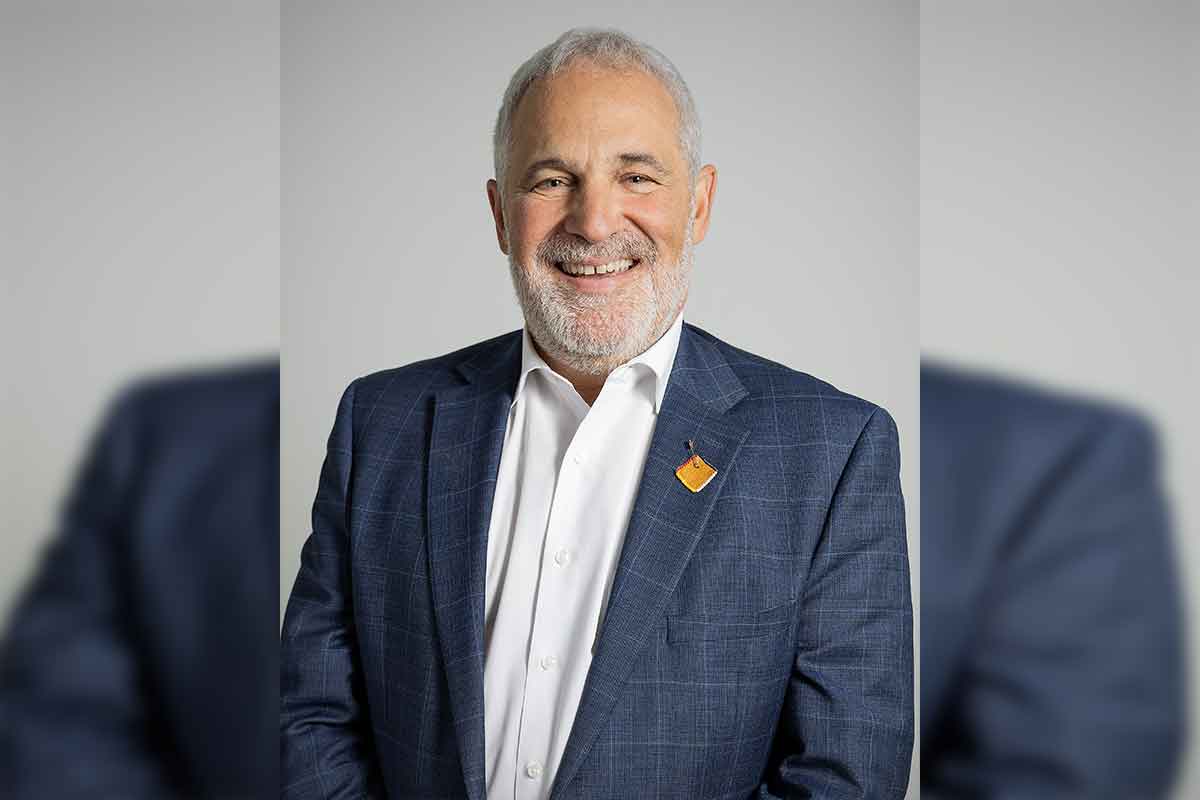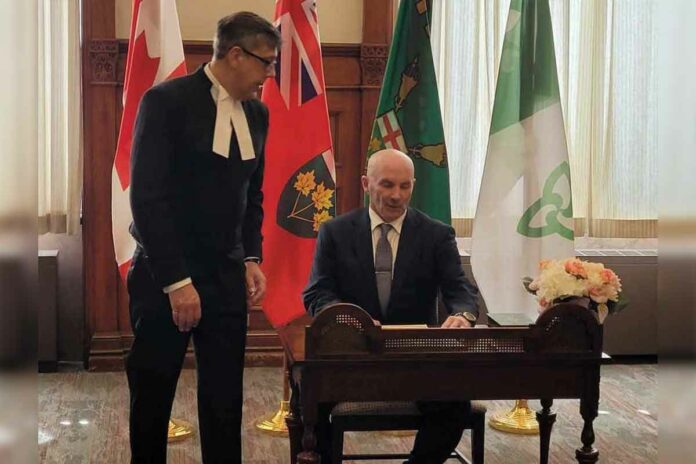Each week until the lead up of the federal election, April 28, The Expositor is posing a question to each of the six candidates running to be the next MP of Sudbury East-Manitoulin-Nickel Belt. The Expositor did not hear back from the Conservative Party candidate Jim Bélanger by press time Monday.
The question is as follows:
A generation ago, Canadians became involved in a conversation that had an impact on a sector of the domestic dairy industry: the issue at that time was bovine growth hormone which, when administered to lactating cows, would render them more productive and hence fewer cows could produce more milk, at least theoretically.
The federal agency that approves these options deemed the product safe for human consumption at the rate that dairy cattle would consume it.
The milk-buying public, on the other hand, was not pleased with such an additive to Canada’s milk supply and the federal government agency responsible withdrew its support for the product and so it remains today.
Currently, the widespread use of products containing glyphosate, a well-used herbicide, is increasingly under scrutiny as a recent report indicates that North America is well on its way to losing one-quarter of its pollinating species, many of which are susceptible to the effects of this herbicide.
As with bovine growth hormone, Canada has approved the use of glyphosate -containing products but even on Manitoulin Island, at least one beekeeper has had widespread die off in their bee population and a subsequent necropsy at the University of Guelph has determined these insects bore levels of glyphosate well beyond appropriate limits.
The agricultural community is justifiably concerned that the elimination of these products could make them less competitive in the worldwide market in which they have to compete and a recent recommendation by Manitoulin municipal representatives stated that they would support the use of glyphosate-containing herbicides by agencies such as Hydro One and the Ministry of Transportation for brush-control measures until a comparable product was available that did not make use of this element.
As with bovine growth hormone, and now with glyphosate, there is a debate between consumers and producers (including the government agencies already named) about public safety as represented by the impact on pollinators.
This is a somewhat different conversation because the bovine growth hormone was never made available in Canada whereas the herbicides containing glyphosate have been on the market for many years.
If the party you represent is successful in forming government, would it invest in research to determine an alternative product that would satisfy both those who use herbicides and those concerned about public and environmental health?
What priority would your party assign such action if it decided to invest in such research rather than leave it entirely to the private sector?
Jim Bélanger, Conservative

Conservative
Did not respond by press time Monday.
Andréane Chénier, NDP

Good Canadian food is at the heart of our homes, our communities and our economy. New Democrats recognize that farmers are facing increasing pressures—from Donald Trump’s trade war to climate change—and that successive Liberal governments have failed to provide the real support farmers need to adapt and thrive.
An NDP government would make it a priority to invest in research to find safe, effective alternatives to glyphosate-based herbicides. We know that protecting public health, the environment, and pollinators is critical, but we must also ensure farmers are not left to carry the burden alone. That’s why we would not leave this research solely to the private sector. We would invest directly in public research through partnerships with universities, independent labs, Indigenous communities, and farmers themselves. This would ensure that alternatives are transparent, affordable, and accessible to all.
In the meantime, we would work with the agricultural sector to support responsible use of herbicides through strengthened regulations and better monitoring of pollinator health. We would require mandatory re-evaluations of pesticide safety every five years, based on independent science, and limit the use of glyphosate by public agencies like Hydro One and the Ministry of Transportation wherever safer alternatives or mechanical options are available.
At the core of this work would be the creation of a Pan-Canadian Food Strategy — a bold plan to make Canada a world leader in sustainable agriculture and food security. This strategy would promote regenerative farming practices, support farmers with transition funding and training, and invest in building resilient rural economies.
New Democrats are committed to ensuring that any shift toward more sustainable farming does not make life harder for farmers. We will work hand-in-hand with producers to build a food system that protects people, pollinators, and our planet for generations to come.
Himal Hossain, Green Party

Thank you for raising this thoughtful and deeply important issue. Your concern for both the health of our environment and the well-being of those who work in agriculture is one I share fully—not as a talking point, but as a personal value.
You’re absolutely right to draw a parallel between past public concerns over bovine growth hormone and the growing alarm around glyphosate. What we learned from the BGH debate is that public pressure and citizen awareness can shape policy—and must continue to do so when it comes to the safety of our food systems and the future of our ecosystems.
The loss of pollinators like bees is a crisis that touches everything from food security to biodiversity. The fact that a necropsy on Manitoulin Island linked bee deaths directly to glyphosate exposure is heartbreaking—and a clear sign that we cannot ignore the long-term impact of these chemicals any longer.
If the Green Party is given the opportunity to form government—or even to exert influence in a minority Parliament—we will absolutely invest in public, independent research to develop safe, sustainable, and effective alternatives to glyphosate and other harmful herbicides. This is not something that should be left to private industry alone. Public trust demands transparency and accountability—something that’s hard to ensure when only profit-driven motives are in play.
We believe that a just transition in agriculture is possible—one that supports farmers and producers with the tools, education, and financial backing needed to adopt safer methods without sacrificing their livelihoods or competitiveness. That includes funding for regenerative farming practices and research into organic and bio-based weed control solutions.
This kind of investment wouldn’t be a fringe issue for us—it’s central to our vision. Healthy soil, pollinator protection, and clean air and water are the foundations of a livable future. The Green Party would prioritize this research as a key pillar of both our climate and agricultural policy.
I want you to know your concerns matter. As someone who believes in policy grounded in science, compassion and care for future generations, I would be proud to advocate for action on this issue in Parliament.
Justin Leroux, Libertarian

The concern over glyphosate today echoes the public debate over bovine growth hormone decades ago. While Health Canada has approved glyphosate for use, the real-world impact—especially on pollinators—raises serious concerns. On Manitoulin Island alone, we’ve already seen reports of widespread bee die-offs confirmed to involve unsafe glyphosate levels.
The question we must ask is not only whether a product meets federal approval, but whether our approach to science, transparency and public trust is working. I believe it’s not.
A Libertarian government would support targeted, publicly transparent research into alternatives to glyphosate—solutions that meet the needs of farmers, the environment, and public confidence. Unlike top-down mandates or outright bans, our approach focuses on voluntary collaboration, open data, and innovation, not more bureaucracy.
Our farmers are some of the best stewards of the land. They deserve tools that work—but also need confidence that those tools won’t harm the ecosystems they depend on. We would partner with universities and independent researchers, not to grow government power, but to ensure science isn’t hidden behind corporate or political interests.
Pollinator health is food security. That makes it a priority. We would reallocate existing government spending—away from corporate subsidies and political vanity projects—and redirect those funds to competitive research grants focused on eco-friendly herbicides and integrated pest management strategies.
Let’s be clear: this issue is not about being “pro” or “anti” chemical use. It’s about honest science, responsible innovation, and respect for individual choice. People should know what’s in their environment, and farmers should be free to choose effective solutions—especially when those solutions are safe for pollinators and people alike.
We don’t need more heavy-handed regulation. We need smart, community-driven alternatives that emerge from transparency and trust. That’s the Libertarian way forward.
Shari St. Louis, People’s Party

The PPC believes that we need to return to a healthy society – that means removing harmful glyphosates that have been linked to increased disease, especially cancer. We are opposed to adding unnatural hormones and chemicals into our food production processes. What we want with the PPC is to make farming, whether it be bees or milk production, to become a viable lifestyle and career for passionate Canadian families. This is why we advocate for the thoughtful dissolution of the supply management systems we currently have in place that remove family farms and replace them with corporations that are more concerned with profit over health. Our food supply should be the safest in the world and it is not – our food is toxic and it is poisoning our people. We need to make farming viable again. We need to make Canada healthy again. As past President of Children’s Health Defense Canada, I stand with Robert Kennedy Jr., American head of Health and Human Services, to investigate and remove anything harmful to our food supply.
Marc Serré, Liberal

The health of our environment, the safety of our food supply, and the sustainability of our agricultural sector are all priorities that Canadians care deeply about, and so do I. It’s clear that public trust must be at the heart of decisions that affect our land and the future of farming communities like those on Manitoulin Island.
We recognize that this is a complex issue, and the balance between economic viability for producers and environmental sustainability is one we must continue to improve. As Liberals, we are committed to science-based decision-making, open dialogue, and ensuring that both agricultural and environmental voices are heard.
Our full platform, including policies related to agriculture, environmental protection, and innovation, will be released in the coming week. At that time, we’ll be able to speak more specifically to these important concerns.





